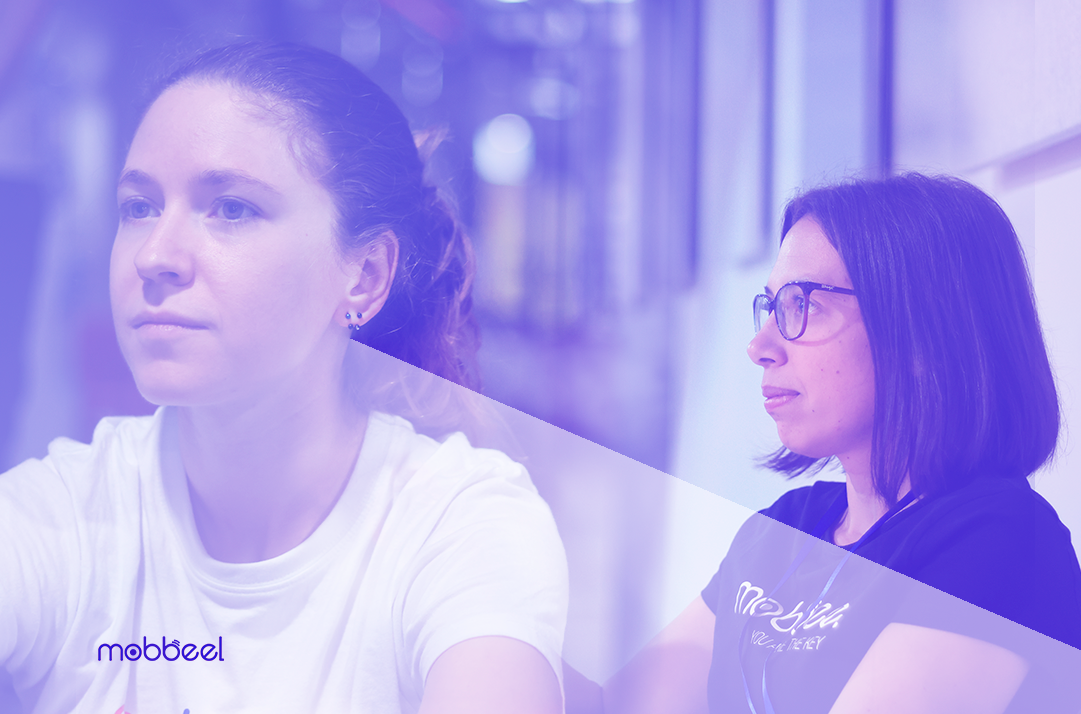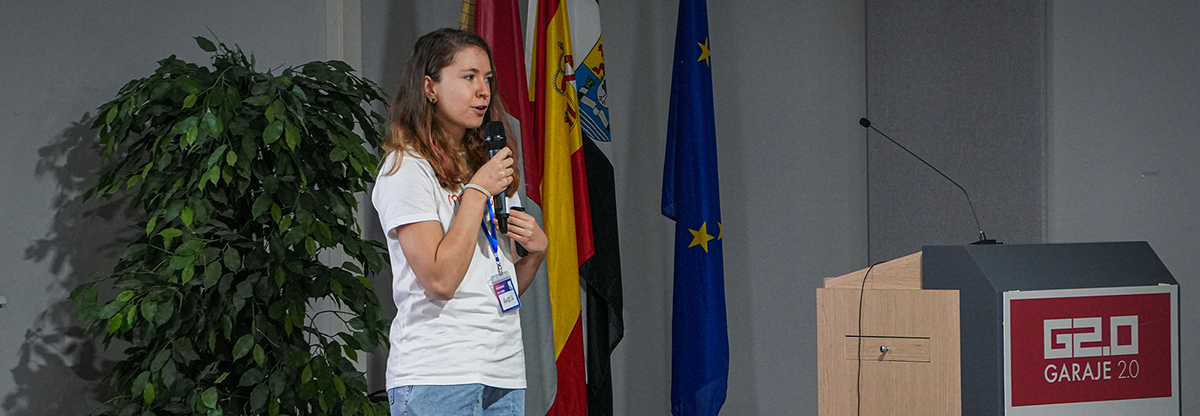The role of women in science has historically been underestimated despite their crucial contributions. Long before the digital age, Ada Lovelace envisioned a machine capable of performing programmable calculations. In 1843, she wrote that such a device could follow instructions through a program. Although the computer she described was never built, her work laid the foundations of computing, earning her recognition as the first person to program a computer.
Women in Technology: The representation gap persists
The role of women in technology has grown in recent decades but remains insufficient compared to that of men. Despite advances in gender inclusion and equity, statistics show that women are still underrepresented in STEM (science, technology, engineering and mathematics) careers and leadership positions within the technology sector.
According to recent data, only 23.47% of ICT specialists in Spain are women. Furthermore, the rate of women enrolled in STEM degrees is far from 50% in all areas: Mathematics (36%), Physics (27%), Telecommunications (23%), and Computer Science (13%).
Artificial Intelligence is a key field for the future, and the presence of women in it is essential to ensure ethical and unbiased development. Nevertheless, only 22% of AI professionals in Spain are women. This lack of diversity can contribute to the creation of gender-biased algorithms, perpetuating inequalities in areas such as employment, healthcare or security.
Why is the visibility and representation of women important?
Artificial intelligence (AI) has experienced rapid growth in recent years, significantly transforming various industries. Nevertheless, this expansion has had negative effects on women in two interconnected ways. First, there is a prevalent gender bias in the data used to train algorithms. Second, there is a lack of representation of women in the teams that develop AI technologies. Both of these issues contribute to the perpetuation of inequalities and emphasise the need for increased female participation in the AI sector, as well as for greater equity within the field.
Machine learning in AI relies on large volumes of data that reflect society. If women, who represent 50% of the population, are not actively involved in its development and solutions are created with mostly male data, there is a high risk that technological advances will not adequately respond to their needs or will generate inequitable experiences in the use of technology.
In the facial recognition area, experts such as Joy Buolamwini demonstrated in 2019 that facial recognition systems had much higher error rates for women and racialised people precisely because of the lack of representation in the datasets used to train them. This bias has now been reduced by using larger, more representative datasets.
One way to mitigate these biases is to increase the presence of women in AI development and encourage female participation. Despite advances in gender equity in technology, women’s representation in this sector remains low. Having diverse teams not only allows for the identification and correction of biases in data but also drives innovation and the creation of fairer and more representative systems. The future of AI cannot be built without the vision of half the population, and equity in AI is a necessity to ensure that these technologies reflect the diversity of the world we live in and benefit all of society.
Mobbeel: A different perspective
While the reality of the STEM world reflects a clear imbalance between male and female presence, Mobbeel’s Smart Systems department is an example of parity, with 50% female representation. This balance is especially relevant given the department’s role: to research and bring to life the AI models behind Mobbeel’s products. Having a diverse team allows us to reduce bias in our models and include ideas from different perspectives and experiences that would not be possible in a single-gender team.
Specifically, we are talking about Belén González Sánchez and Ángela Barriga Rodríguez, both PhDs in fields related to computer science and AI. Their work focuses on integrating advanced AI models to solve complex problems and improve the security and accessibility of Mobbeel’s technological systems.
Here is their work and experience:
Ángela’s career
Ángela Barriga Rodríguez, computer engineer and PhD specialised in artificial intelligence, machine learning and computer vision. I currently work as Smart Systems Lead at Mobbeel, where I manage and work on the design and implementation of technological solutions applied to the field of biometrics. I enjoy collaborating as a speaker in technological and academic talks.
A journey through codes and algorithms
I graduated in Computer Engineering in Software Engineering from the University of Extremadura, where I also completed a double Master’s degree in Computer Engineering and ICT Management. After this stage, I continued my academic development at the Western Norway University of Applied Sciences. I completed a PhD focused on advanced machine learning applications, covering areas such as reinforcement learning, neural networks, and explainable AI. This work included publications in international scientific journals, in which I addressed innovative approaches to developing more transparent and accessible learning models.
Throughout my career, I have had the opportunity to develop experience in both research and applied professional environments. In addition, I have collaborated with several companies and technology projects, taking on roles that combine software development, team management and the creation of innovative solutions.
At the same time, I have experience teaching, providing training at the master’s level, and participating in scientific dissemination activities. I strongly believe in the importance of bringing technology and science to a wider audience, especially by encouraging girls and women to take an interest in STEM disciplines.
Computer science is for everyone
During my studies, it was clear to me that I was destined to be in the minority as a woman, even becoming the first woman to work in one of the companies I have worked for. However, my experience has been very positive and in no case has my gender worked against me. In my case, I went into computer science because of my passion for video games from a very young age, but over time, I fell in love with other aspects of this profession. Every day is a new challenge that allows me to continue developing and satisfying my intellectual restlessness. In addition, IT is one of the best sectors in the world of work today. It allows me to enjoy stability that is not available in other fields and advantages such as teleworking.
I think there is a certain myth that tinges computer science and programming, in particular, as a field where there is only room for ‘eggheads’, people who are very good at mathematics and that it is a skill that only a few can handle. My experience is far from this. I am not a maths expert, and I have never been, yet I had no problem learning and developing the skills necessary to pass the degree. There is a perception that sees programming and technology as ‘magic’ and that they are skills that, as in any other field, anyone can learn to do.
Technology is an ever-changing industry, and now more than ever, with the rise of AI, I believe it is essential to encourage diversity at all levels. I hope that my experience, both in research and in the technology sector, can inspire more women to enter the world of artificial intelligence and computer science and to be an active part of the advances that are defining the future.
Belén’s career
My name is Belén González, I hold a PhD from the University of Extremadura in metaheuristics and multi-objective algorithms, and I have a Master’s degree in Computer Engineering and another one in Analysis and Visualisation of Massive Data. My training and experience led me to join Mobbeel five years ago, where I perform tasks that, while maintaining the goal of optimising the performance of the technology to the maximum, also allow me to continuously learn, analyse and grow in the field of AI.

An unexpected path to engineering
Back in 2008, when it was time for me to decide what to study at university, the idea of pursuing an engineering degree wasn’t even on my radar. I might have considered something related to architecture, but nothing really caught my interest – lack of references, lack of information, or just indecision. Finally, I opted for a Higher Level Training Cycle in ‘Computer Applications Development’, which I chose because it was close to home, and so began my immersion into computer engineering.
Since that time, I have been part of a minority representation of the female gender in every stage: Training Cycle, Degree, Master’s, and work environments, among others. At the time, I never experienced it as a problem; after all, it is not the only area where gender inequality exists. Nevertheless, in recent years, working closely with artificial intelligence, I have become more aware of the real impact of this gap in technological development, especially in the field of AI; there are not many women in artificial intelligence.
The movement towards diversity
Although technology is advancing by leaps and bounds and AI has become one of the most relevant disciplines today, it is worrying that women are still a significant minority in the development and research of this technology. This disparity is reflected not only in the number of women in positions in the tech industry but also in the lack of diversity of perspectives within the algorithms and models that are created. I believe my work and experience can bring significant value, not only as a professional dedicated to optimising algorithms’ performances but also as a woman in a field where representation is key. Increasingly, diversity is being recognised as a crucial factor for innovation. As more women and people from different backgrounds enter the field of technology and AI, we can develop more inclusive and fair solutions for all.
Contact us if you would like to be part of the change and help close the gender gap in AI, creating a more equitable future with increased representation of women in the artificial intelligence industry.





